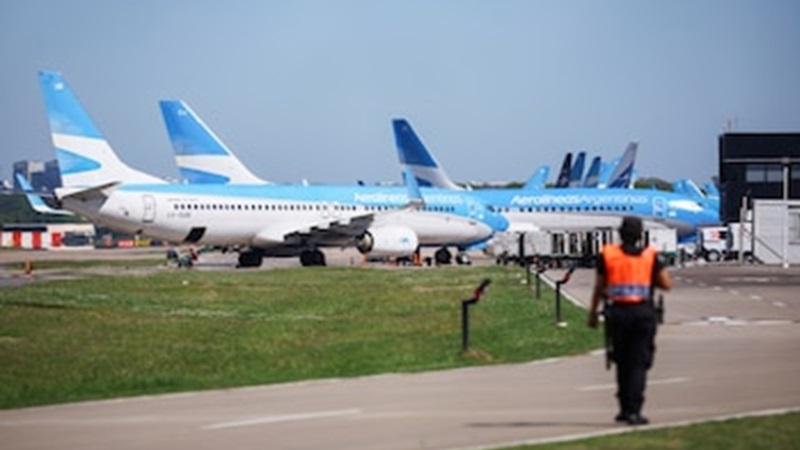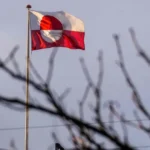
It is known. The government targeted aeronautical workers in its attacks. He used the militarization of airports and the support of large media groups for his attack. The lies and stigmatization of workers were the axis of a disastrous anti-worker campaign that sought to intimidate and undermine the morale of those who put in their efforts every day to make things work at airports and planes fly through the skies.
However, the government’s enormous reactionary campaign, the immediate results of the joint negotiation yielded contradictory results. The initial claims that the government put forward against the supposed “privileges” did not go beyond the intentions and everything would indicate that the conflict is still latent. A “seasonal” impasse where airlines are neither privatized nor enter “preventive bankruptcy.” The government’s boast as soon as the negotiation is over seems to seek volume in public opinion for future attacks, rather than a concrete reality reflected in the minutes. In this regard, the government did not make them public and, it must be said, neither did the Unions. The secrecy of the latter ends up collaborating with the discursive orientation of the ruling party. Escaping any reassuring vision, the group of aeronautical workers realizes that the government siege persists. The day after the agreements the government once again insisted on its privatization objective.
Thus, everything would indicate that the government was forced to increase the percentages initially intended, bringing the figure to 19% but below what was lost in the year for the workers’ pockets. The most nodal conventional points would move to a diffuse “work table” giving rise to what we could define as an impasse. The importance of this witness conflict in full flow is valid both for the world of workers who inhabit the airports and for all sectors of workers in other branches of services and industry who are extremely aggrieved by official policies. Let it be clear: the government wants to, but it cannot always. The strength of those who move things in our country tries to be minimized for the purposes of the national government. It happens that after the campaigns and speeches there is reality.
It is necessary to highlight a fundamental aspect of the negotiation deliberately hidden by the media plants, namely. It was not possible to impose the illegal anti-strike discount on which the government strenuously insisted regarding the transportation strike. The media silence regarding this point was not valid for several sector assemblies that applauded it as a triumph against the attempts to naturalize the attack on the elementary right to protest and strike. The sheepish elements were defeated. This issue is of vital importance since the PSA maintains the police state inside the airports and in particular against Intercargo workers.
It is of the first order to denounce the PSA’s siege on the labor structure that crosses the multiple functions of Rampa’s work at airports. To the terror of the dismissals of Intercargo colleagues, under accusation of participating in an assembly in defense of a colleague, police terror is added. A combo that seeks to intimidate and appease the strength of the workers. The direct relationship that this permanent provocation has is part of the employer and state arrogance that tries to impose an armed cartel, thereby supporting the policy of “essentiality” of the aeronautical sector. Similar to what is being tested for other areas and work structures. Hence, the silence of the aeronautical Unions and in particular of APA results in a dangerous precedent for aeronautical workers and all workers. It is not about publishing timid and diffuse corporate press releases. The slogan Get the military out of our jobs! It must be a flag of the first order for the entire working class and all democratic sectors that fight against the government.
Starting from this more general point of view, it is necessary that aeronautical workers take the active initiative, establishing the daily and democratic deliberation of their own affairs. For this, it is essential that the grassroots assembly body takes the lead in the resistance against the privatization of Aerolíneas and Intercargo. Deliberation that we have to promote seeking the unification of all sectors. Unite what the sector’s Unions divide. Unite Ramp, pilots, crew, traffic, outsourced. Unite workers from different companies such as Controllers, Intercargo, Airlines. Even go to the unit with the colleagues who work in the “Low Cost” companies.
It happens that the enemy seizes the levers of the State to rapidly promote the “Open Skies” orientation, blatantly opening the space to foreign companies that target the lucrative hubs of aero-commercial activity. In this way, the material conditions and pressures necessary to destroy Aerolíneas and Intercargo are generated. Any corporate fight that is limited to the narrow margins that marks union membership is likely to lose. If the fight is not joint and unified, it becomes difficult to confront the governmental enemy that deals blows to our conquests in a unified manner. With the State, the employers and the PSA coordinating their blows against the workers.
Hence, the “truce” between the government and the aeronautical unions results in initiative and time in favor of the official side. That is why we aeronautical people have to organize active resistance from day one. To do this we use our own history. Powerful and present. The memory of the enormous fight against the closure of Airlines for when the Iberia group completed the emptying and wanted to destroy our flag line. It was not only the aeronautical people who resisted. The victory against the closure was the product of an enormously mobilized public opinion that made it impossible for the dumpers to carry out their closure plan.
Therein lies the enormous value of the fight against the dismissals of the outsourced colleagues from Airlines (GPS) who in their journey went in search of the living forces that confront the government’s plans. Participating in whatever mobilization was carried out, in the Popular Assemblies, in the students in struggle and being part of the takeover of powers, unifying together with retirees, students, and other sectors in struggle the fight against the adjustment that impacts all workers. . Seeking mutual solidarity and contributing to active defense against privatization.
Be that as it may, in the next episode of the aeronautical battle, there is a slogan to highlight, GET THE POLICE OUT of our workplaces and our jobs and Intercargo; reincorporation of all those dismissed from Intercargo, as well as for GPS colleagues, no to the privatization of Aerolíneas and Intercargo. From our group El Despegue, consistent with the ideas of the left that we promote, we will give everything to organize and confront the plans of the right that governs us.
Source: www.laizquierdadiario.com

